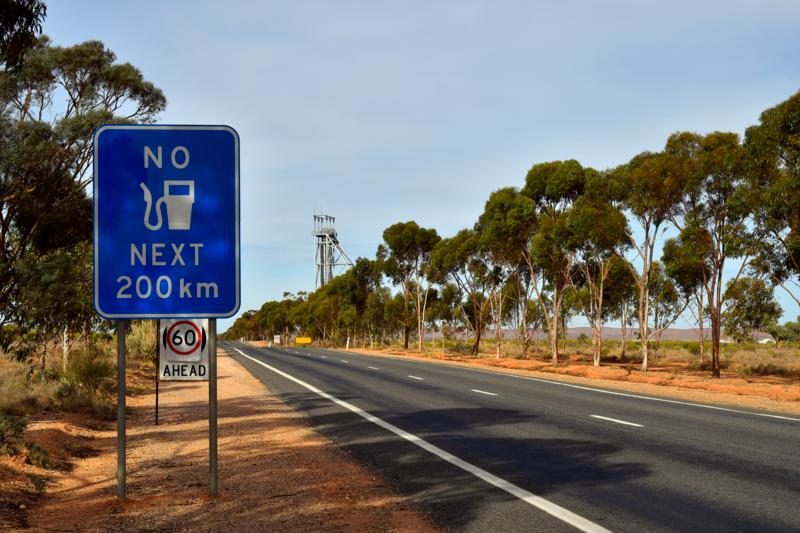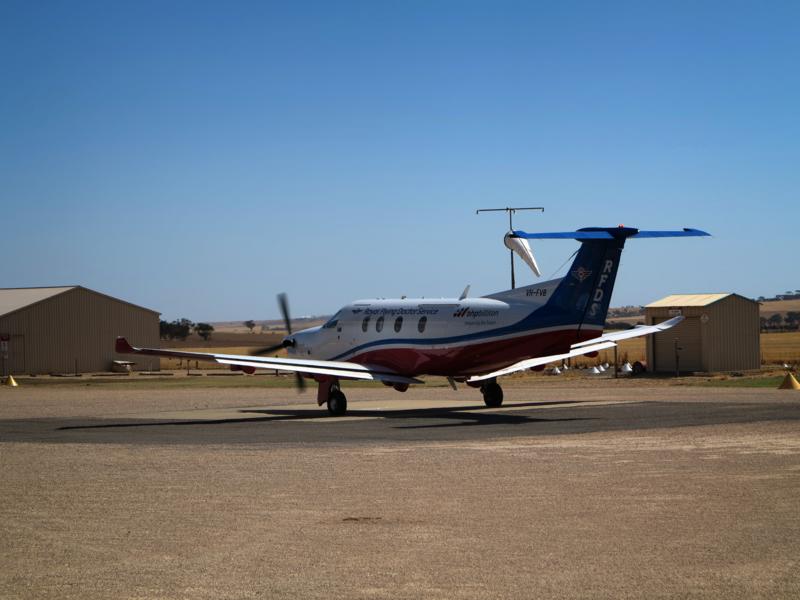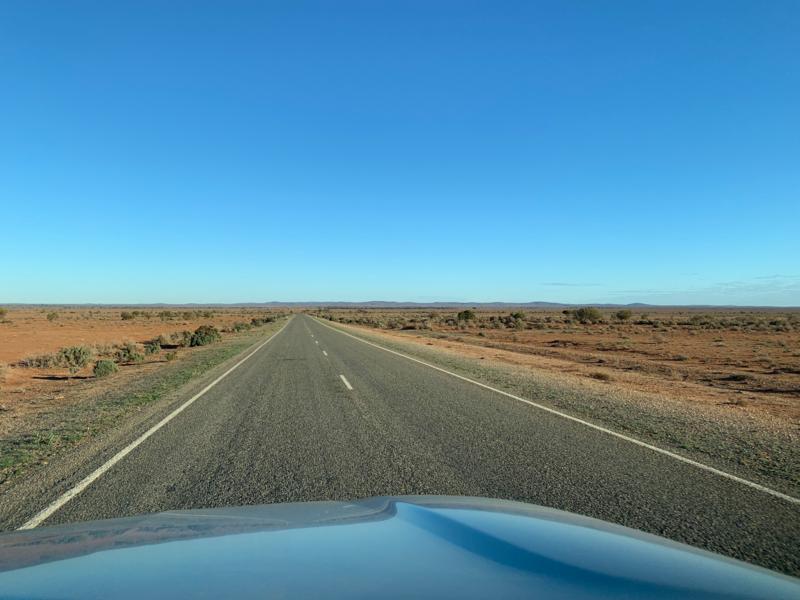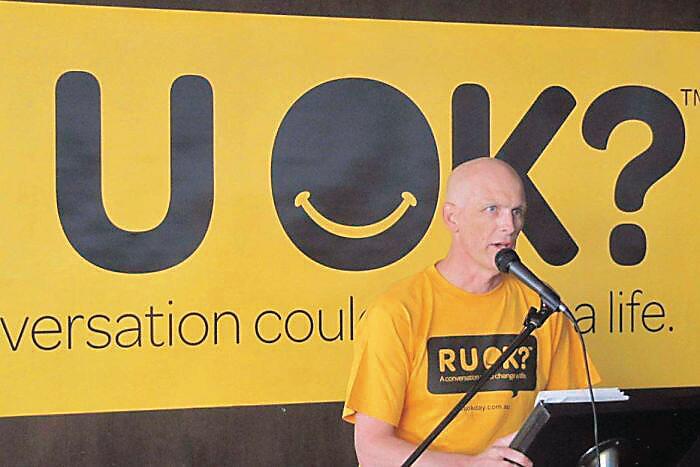BRENDAN Cullen can still remember the point at which he knew he needed help. "I told my wife, Jacinta: 'I need to see someone. I am buggered,' he recalls. “And then I took myself off to Broken Hill Base Hospital.” There, Brendan was diagnosed with depression.
Everyone knows about rural depression but few have spoken about it as openly as Brendan who manages 60,000-hectare Kars Station, 60km outside Broken Hill, where he runs Wiltipoll sheep.
His depression spiralled over a period of time. It first took root, he believes, after his dream of taking over the family station was crushed and he had to walk away. “That was bloody tough,” he says. “But I was looking into the future and not seeing anything.”
“ It was the bravest and hardest thing I’ve ever done.” - Brendan Cullen ”
 Drought and isolation are two of the most common triggers for depression in rural communities. Source: iStock.
Drought and isolation are two of the most common triggers for depression in rural communities. Source: iStock.
He decided to rebuild his future with a reputation as a valuable worker for other station owners – but his 24/7 drive and the pressure he put himself under began to take its toll. “I’d write a list and try to achieve everything on that list no matter what. I wasn’t happy until it was done.
“If you saw me driving around, you’d think I must have someone sitting next to me. But there was no-one there – I was arguing with myself out loud. I filled my head with rubbish and exhausted a lot of energy on nothing.”
The 2009 drought exacerbated his misery. “I had a few breakdowns, I’d sit on the bed just bawling my eyes out. Everything was feeling too hard. I had three lovely children and a lovely wife but I’d disappeared. I didn’t want to talk to people, forgot to live healthily and drank too much. I’d go into town and people would say: ‘Jeez you look tired, mate.’
“I couldn’t find solace in anything which tells me now I was in a dangerous space.”
RELATED ARTICLES:
Drought affected farmers: “We'll get through it"
The voices of Menindee: Far West water crisis
Along with the sufferer, mental health also impacts the wider community.
Brendan’s depression was also affecting Jacinta. “I was worn out because I was trying to look out for him and over-compensate on what the children might have been missing out on from their dad," she says.
Meanwhile her husband was becoming emotionally and physically exhausted. “One day I was standing in the kitchen with Jacinta and I felt my heart beating out of my chest. I thought I was having a heart attack. That was probably a trigger to thinking something wasn’t quite right.”
 The Royal Flying Doctor Service is helping bridge the gap for rural and remote areas with greater access to mental health services. Source: Getty Images.
The Royal Flying Doctor Service is helping bridge the gap for rural and remote areas with greater access to mental health services. Source: Getty Images.
The turning point came after Brendan attended a
Royal Flying Doctor Service life skills course for young farmers, including workshops on mental health. He realised he was ticking a lot of boxes and may need help. In October 2015 he took himself off to hospital. “It was the most enormous weight off my shoulders. I thought: ‘Now I know what’s going on. I’m going to fix this.’”
RELATED: Access to mental health services
Different coping mechanisms for mental health
Today, Brendan is such a cheerful, funny bloke it’s hard to believe he ever struggled, but with the help of professionals he’s developed a box of tools that help him stay positive.
“ These allow me to handle situations and make good life decisions. I’m off medication and I get a high from helping other people, even something simple like baking a cake. ”
A recent feature on the 7:30 report shows how the Cullen’s are faring in tough times, sometimes all it takes is a slice of cake.
Despite having such a physical job Brendan, like many agricultural workers, has found that sport and fitness also help reduce levels of the ‘stress hormone’ cortisol. He runs and regularly makes the 140km round trip to Broken Hill to train at Broken Hill swimming pool in the mornings. And despite living five hours from his nearest beach and having a fear of sharks, has become pretty handy at ocean swimming races.
 Although it’s a long trip from Kars Station to Broken Hill swimming pool, Brendan realises the importance of maintaining his fitness to reduce levels of the stress hormone cortisol.
Although it’s a long trip from Kars Station to Broken Hill swimming pool, Brendan realises the importance of maintaining his fitness to reduce levels of the stress hormone cortisol.
“I don’t burden myself. If I can achieve something, I do but I’ve realised I don’t need to knock myself around,” he says. “I’ve opened myself to being ordinary.”
As a result, he reckons, he also has a better relationship with his three children. “I think I was a good father before but sometimes I had to choose between the job and my children. Nothing will come between me and my kids again.”
Call a mate in tough times
Most important of all, however, is that eternal Australian value: mateship. “I have three mates who reached out to me when they heard about my depression and admitted: ‘Gee that’s me as well.’ We now ring each other regularly. It might only be ten or 15 minutes but it helps enormously because we can relate.”
Brendan and his daughter having a laugh at the AgFair in Broken Hill.
Brendan has become an ambassador for
Lifeline and his story is now told in a new podcast series,
Holding on to Hope. He urges anyone else having problems to seek help – even if it’s simply approaching someone like him who’s been on the same journey. “It’s not up to you to make the call as to whether you’re depressed. Allow someone else to make that call. I know a lot of people can’t bring themselves to do that but they’ll grow old not knowing how to be happy.”
Lifeline Stress Down Day is held nationwide on 24th of July. Visit their website for
more information.
FIND MORE > Support service details
If this story has raised any issues for you, call Lifeline at any time on 13 11 14. If life is in immediate danger, call 000.
Brendan Cullen identifies common triggers for rural depression
 In 2009, Gavin Larkin launched campaign R U OK? in honour of his father Barry Larkin. Source: R U OK Website.
In 2009, Gavin Larkin launched campaign R U OK? in honour of his father Barry Larkin. Source: R U OK Website.
The suicide of Barry Larkin in 1995 left family and friends in deep grief. In 2009 his son Gavin Larkin launched a campaign in his honour, centred around the question: “Are you okay?”
Today the
R U OK? campaign is going strong, despite the sad death of Gavin in 2011 from cancer. His legacy is a national ‘conversation movement’, which is equipping Australians with the skills and confidence to support those struggling with life.
R U OK? Day is held nationwide on 13th September. Visit their website for more information.
R U OK?’s Tips for helping mates who are down
1. Ask are you okay?
- Be relaxed, friendly and concerned in your approach.
- Help them open up by asking questions like, “How are you going?”
- Mention specific things you’ve noticed, such as, “You seem less chatty than usual.”
2. Encourage action
- Ask them, “How would you like me to support you?”
- You could say, “When I was going through a difficult time, I tried this… you might find it useful, too.”
- If they’ve been feeling really down for more than two weeks, encourage them to see a health professional.
3. Listen without judgement
- Take what they say seriously and don’t interrupt or rush the conversation.
- Don’t judge their experiences or reactions but acknowledge that things seem tough for them.
4. Check up on them
- Pop a reminder in your diary to call them in a couple of weeks. If they’re really struggling, follow up sooner.
- Say, “I’ve been thinking of you and wanted to know how you’ve been going since last time we chatted.”
- Stay in touch and be there for them. Genuine care and concern can make a real difference.
Free rural mental health support services
Lifeline Australia: 13 11 14
NSW Mental Health Line: 1800 011 511
Kids Helpline: 1800 55 1800
MensLine Australia: 1300 789 978
Mate Helping Mate:
facebook.com/matehelpingmate
(a self-help program for men in rural Australia)
Suicide Call Back Service: 1300 659 467
Beyond Blue: 1300 22 4636
Aussie Helpers Virtual Psychologist: virtualpsychologist.com.au
(counselling services by SMS, phone, social media platforms or chat)
Rural Adversity Mental Health Program:
ramhp.com.au